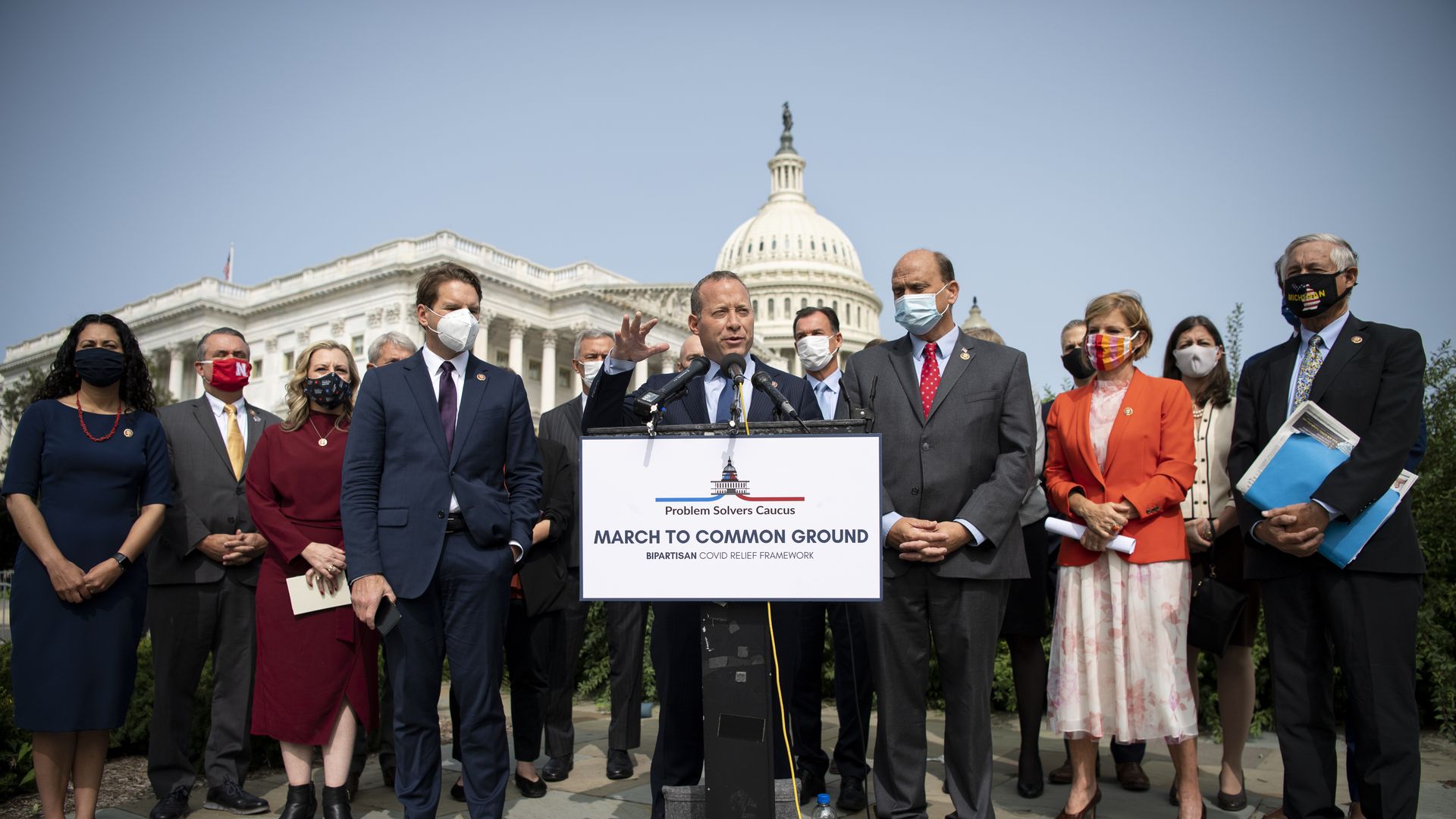Sep 15, 2020 - Politics & Policy
Bipartisan Problem Solvers Caucus unveils $2 trillion coronavirus bill
Add Axios as your preferred source to
see more of our stories on Google.

Rep. Josh Gottheimer joined by other members of the Problem Solvers Caucus, unveils the March to Common Ground proposal, Sept. 15. Photo: Caroline Brehman/CQ-Roll Call, Inc via Getty Images
